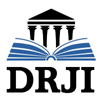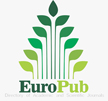THE LEVEL OF STUDENT INDEPENDENCE IN IMPLEMENTATION OF E-LEARNING-BASED LEARNING
Abstract
Education is an important part of every individual as well as a form of state development. The development of education is closely related to the development of the industrial era, this connection is also supported by the current adherence of individual habits to technology. The fact of the closure of schools and the Ministry of Education and Culture's circular to study at home support a more intense interaction between education and technology due to the development of the industrial era called e-learning. In its current application, there are various obstacles in the implementation of e-learning. The independence of students towards e-learning is important because the active involvement of students in learning is an important part of achieving good e-learning. This study aims to determine the level of independence of students in e-learning implementation. The design of this study used a quantitative approach by methode survey: cross sectional. The population in this study is class X Mechanical Engineering at SMK Negeri 6 Bandung with the determination of the sample using purposive sampling. The sample is determined as many as forty people (one class) to get a picture of the specific independence of learners. The result of this research is the level of independence of the students in class X of Mechanical Engineering at SMK Negeri 6 Bandung is in the high category however, categorized based on the interval class, the dominant of students are in the lowest third grade. There are five lowest indicators based on the class intervals in between: disciplined behavior, active learning, independence from others, continuous learning routines and behavior based on one's own initiatives.
Keywords
Full Text:
PDFReferences
Akhdiyat, A. M., dan Hidayat, W. (2018). Pengaruh kemandirian belajar matematik siswa terhadap kemampuan berpikir kreatif matematis siswa SMA. JPMI (Jurnal Pembelajaran Matematika Inovatif), 1(6), 1045-1054.
Akmaluddin, A., & Haqqi, B. (2019). Kedisiplinan belajar siswa di sekolah dasar (sd) negeri cot keu eung kabupaten aceh besar (studi kasus). Journal Of Education Science, 5(2), 1-12.
Al Aslamiyah, T., Setyosari, P., dan Praherdhiono, H. (2019). Blended learning dan kemandirian belajar mahasiswa teknologi pendidikan. Jurnal Kajian Teknologi Pendidikan, 2(2), 109-114.
Arisinta, R., As’ari, A. R., & Sa’dijah, C. (2019). Realistic mathematics education untuk meningkatkan kemandirian belajar matematika. Jurnal Pendidikan: Teori, Penelitian, Dan Pengembangan, 4(6), 738-746.
Aulia, L. N., Susilo, S., & Subali, B. (2019). Upaya peningkatan kemandirian belajar siswa dengan model problem-based learning berbantuan media Edmodo. Jurnal Inovasi Pendidikan IPA, 5(1), 69-78.
Citra, I. P. A. (2017). Strategi pemberdayaan masyarakat untuk pengembangan ekowisata wilayah pesisir di kabupaten buleleng. Jurnal Ilmu Sosial Dan Humaniora, 6(1), 31-41.
Damayanty, D. Y., dan Sumadi. (2016). Hubungan antara kemampuan numerik, kecerdasan emosi dan kemandirian belajar dengan prestasi belajar fisika siswa. Jurnal Ilmiah Pendidikan Fisika-COMPTON, 3(2), 50-56.
Inah, E. N., Ghazali, M., dan Santoso, E. (2017). Hubungan belajar mandiri dengan prestasi belajar PAI Di MTsN 1 Konawe Selatan. Jurnal Al-Ta’dib, 10(2), 19-36.
Juliasari, N., dan Kusmanto, B. (2016). Hubungan antara manajemen waktu belajar, motivasi belajar dan fasilitas belajar dengan prestasi belajar matematika siswa SMP Kelas VIII Se-Kecamatan Danurejan Yogyakarta. UNION: Jurnal Ilmiah Pendidikan Matematika, 4(3), 405-412.
Jumaisyaroh, T., Napitupulu, E. E., & Hasratuddin, H. (2015). Peningkatan kemampuan berpikir kritis matematis dan kemandirian belajar siswa smp melalui pembelajaran berbasis masalah. Kreano, Jurnal Matematika Kreatif-Inovatif, 5(2), 157-169.
Lisa, J. L., Ariesta, R., dan Purwadi, A. J. (2019). Analisis interaksi guru dan siswa dalam pembelajaran bahasa indonesia di kelas VII SMP Negeri 15 Kota Bengkulu. Jurnal Ilmiah KORPUS, 2(3), 270-282.
Muhammad, H., Murtinugraha, R. E., & Musalamah, S. (2020). Pengembangan media pembelajaran e-learning berbasis moodle pada mata kuliah metodologi penelitian. Jurnal Pensil: Pendidikan Teknik Sipil, 9(1), 54-60.
Ngubaidillah, A., dan Kartadie, R. (2018). Pengaruh media visual menggunakan aplikasi lectora inspire terhadap hasil belajar peserta didik. Jurnal Penelitian Pendidikan, 35(2), 95-102.
Pratiwi, I. D., & Laksmiwati, H. (2016). Kepercayaan Diri dan Kemandirian Belajar Pada Siswa SMA Negeri œX. Jurnal Psikologi Teori dan Terapan, 7(1), 43-49.
Purmadi, A. (2013). Hubungan intensitas belajar terhadap prestasi belajar fisika siswa SMA. Journal of Chemical Information and Modeling, 53(9), 1689-1699.
Rintayati, P., dan Putro, P. (2012). Meningkatkan aktivitas belajar (active learning) siswa berkarakter cerdas dengan pendekatan sains teknologi (STM). Jurnal Didaktika Dwija Indria, 1(2), 1-24.
Rosmi, N. (2017). Penerapan model pembelajaran langsung untuk meningkatkan hasil belajar matematika siswa kelas III SD Negeri 003 Pulau Jambu. Jurnal Pajar, 1(2), 162-167.
Sadikin, A. (2019). Interactive media development of e-learning in welcoming 4.0 industrial revolution on ecosystem material for high school students pengembangan media e-learning interaktif dalam menyongsong revolusi industri 4. Jurnal Ilmiah Pendidikan Biologi, 5(2), 131-138.
Salmon, G. (2019). May the fourth be with you: creating education 4.0. Journal of Learning for Development (JL4D), 6(1), 95-115.
Sudiana, R., Fatah, A., & Khaerunnisa, E. (2017). Kemandirian belajar mahasiswa melalui pembelajaran berbasis virtual class. Jurnal Penelitian Dan Pembelajaran Matematika, 10(1), 74-80.
DOI: https://doi.org/10.17509/jmee.v8i1.35481
Refbacks
- There are currently no refbacks.
Copyright (c) 2021 Journal of Mechanical Engineering Education

This work is licensed under a Creative Commons Attribution-ShareAlike 4.0 International License.
Indexed by:
ISSN: P 2356-4997
View My Stats
 Journal of Mechanical Engineering Education (Jurnal Pendidikan Teknik Mesin)
Journal of Mechanical Engineering Education (Jurnal Pendidikan Teknik Mesin)








